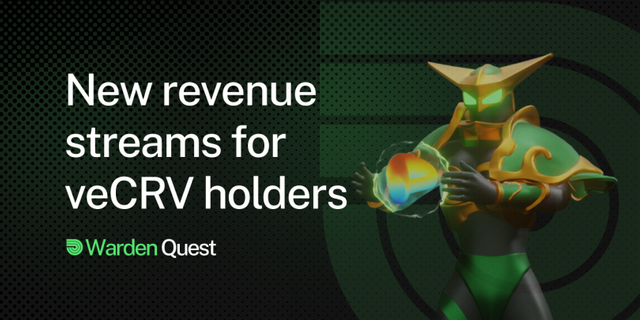
As the speculative frenzy cools down, builders continue to roll out powerful integrations for some of the biggest financial institutions in the decentralized finance (DeFi) space. A decentralized automated market (AMM) maker, Curve Finance, has been in the spotlight, especially after introducing its veCRV token, which includes metered weighted voting and share increment rights. bonus, among other features. The benefit of incentivizing Curve token holders to vote on a particular metric has spurred new developments in the space. In this article, we will review Curve Finance and guide the reader on how veCRV token holders can easily access new revenue streams with the latest solutions available. The Curve ecosystem has higher voter turnout than most other DeFi protocols, largely due to its veCRV locking system. Requiring users to lock themselves out, anywhere from three months to four years, to access the token utility has led stakeholders to adjust. The token itself is distinguished by a clear separation of utilities. The first layer is an administrative fee sharing system, which distributes fees in the form of 3CRV triplet tokens. It is basically a stablecoin. The second layer is Parameter Control or Policy Administration, which controls what the parameters will be for the protocols and who will have the measure. The third layer is the measuring bulb, which controls the emissions. It is similar to a fixed currency system. What is not fixed is the distribution. Meter voting allows stakeholders to determine the amount of CRV emissions per meter. The fourth layer is pushing, which is a way for liquidity providers to maximize their CRV rewards up to 2.5x. Just by locking the CRV and conforming to the protocol, anyone can access these layers. Layering also provides a Decentralized Autonomous Organization (DAO) insight into user behavior in the system. High participation is often a key health factor for any DAO - although it can differ for different stakeholders, as users can exercise their token rights directly, authorize them or even sell them on specialized DeFi marketplaces. For example, decentralized governance lending protocols, such as Paladin, allow users to sell their token rights to more active governance participants. These innovative solutions reduce the friction of governance activities while increasing rewards for passive and active token holders. Paladin has pushed this solution into a larger mission of enhancing decentralized governance through participation rather than pure speculation. Curve's VeCRV is a locked token that requires a custom system to match its design. Therefore, the Paladin team released a new solution this year, called Warden. Warden is a non-friendly marketplace that allows veCRV holders to sell their boost rights as well as evaluate votes using its newest feature, Quest. DeFi projects have been very creative in trying to get veCRV voters to vote for their metric, and Quest as a product is designed to meet those needs. However, it represents a more attractive solution for veCRV holders. Quest offers a lucrative opportunity to evaluate voters with rewards from a range of DAOs including Paladin, Threshold Network, StakeDAO and Alchemix Finance. With more projects targeting Curve meters, the list will continue to grow. For one voter, the process to access new revenue streams is simple: DeFi projects that need more CRV emissions will create a task whose primary goal is the number of votes they need. Until this number is filled, any veCRV holder can transfer their vote to the mission and earn rewards for the duration of the mission, which can last several weeks. Rewards can be accumulated and received at any time through the Warden app. Product instruction videos are available here. Starting with a specific type of DeFi token, the Paladin team continues to introduce innovations, such as Warden and Quest, to further the DAO's mission within the larger ecosystem. Paladin strongly believes that efficient and sustainable governance will be the key to the continued success of DeFi, and the team is committed to ensuring that all decentralized governors have access to public funds. tools they need to keep the space flexible and vibrant. More information on Paladin and Warden can be found at paladin.vote.
Authors get paid when people like you upvote their post.
If you enjoyed what you read here, create your account today and start earning FREE STEEM!
If you enjoyed what you read here, create your account today and start earning FREE STEEM!
Your post was upvoted and resteemed on @crypto.defrag
Downvoting a post can decrease pending rewards and make it less visible. Common reasons:
Submit